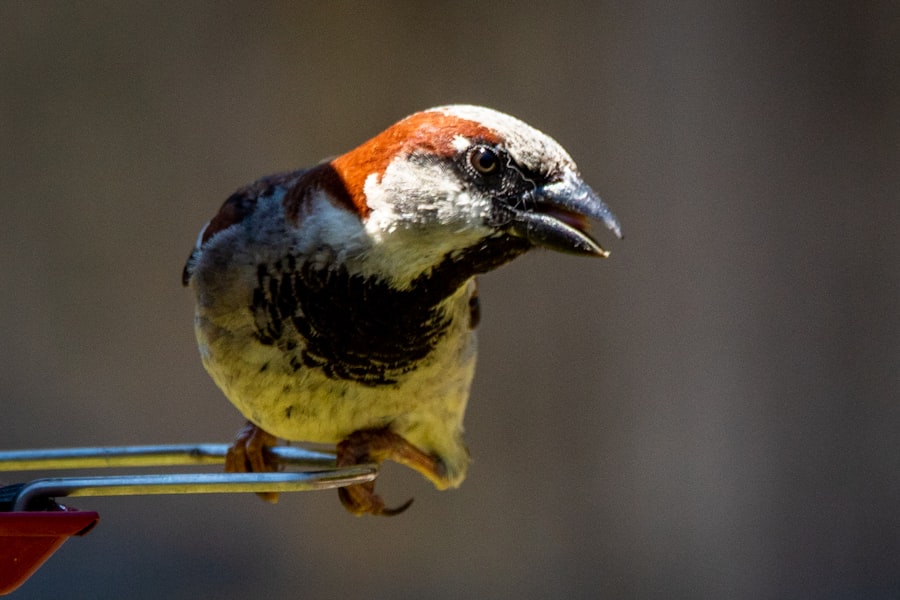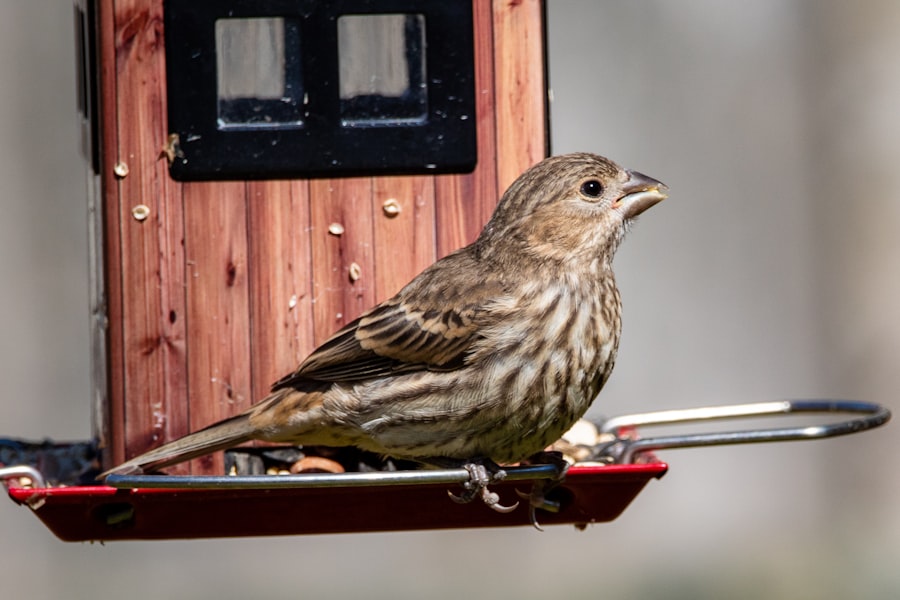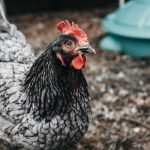When selecting chickens for a coop, breed choice is a critical decision. Different breeds offer varying characteristics, including egg production, meat quality, and climate adaptability. Egg-laying breeds like Rhode Island Red, Leghorn, and Australorp are popular for backyard coops.
For meat production, Cornish Cross and Freedom Ranger breeds are efficient options. Climate considerations are also important; Plymouth Rock and Wyandotte breeds are suitable for colder regions, while Sussex and Orpington chickens adapt well to warmer environments. Factors to consider when choosing a chicken breed include:
1.
Egg production capacity
2. Meat quality and growth rate
3. Climate suitability
4.
Space requirements
5. Temperament
6. Noise levels
7.
Foraging abilities
Researching breed characteristics and assessing specific needs will help ensure a successful and productive chicken coop. The right breed selection can lead to years of efficient egg or meat production and overall satisfaction with the poultry-keeping experience.
Table of Contents
- 1 Coop Design and Maintenance
- 2 Feeding and Nutrition
- 3 Health and Wellness
- 4 Egg Production and Collection
- 5 Managing Chicken Behavior
- 6 Legal Considerations and Regulations
- 7 FAQs
- 7.1 What are the benefits of keeping chickens at home in New Zealand?
- 7.2 What do I need to consider before keeping chickens at home in New Zealand?
- 7.3 What type of housing and space do chickens need in New Zealand?
- 7.4 What do chickens eat and drink in New Zealand?
- 7.5 What are some common health issues for chickens in New Zealand?
- 7.6 Do I need a permit to keep chickens at home in New Zealand?
Key Takeaways
- Consider the climate, space, and purpose of raising chickens when choosing the right breed
- Ensure the coop design allows for easy cleaning and maintenance to promote chicken health
- Provide a balanced diet with proper nutrition to support egg production and overall health
- Regularly monitor and address any health issues to ensure the well-being of the chickens
- Establish a routine for egg collection and proper storage, and monitor production for any irregularities
- Understand and manage chicken behavior to promote a harmonious and productive flock
- Familiarize yourself with local regulations and legal considerations for keeping chickens at home
Coop Design and Maintenance
Factors to Consider When Designing Your Coop
When designing your chicken coop, several factors come into play, including the number of chickens you plan to keep, the climate in your area, and your personal preferences. It’s essential to provide enough space for your chickens to move around comfortably, as well as adequate ventilation and protection from predators.
Essential Features of a Chicken Coop
In addition to the overall design, you’ll need to consider essential features such as nesting boxes, roosting bars, and access to food and water. These features are crucial for your chickens’ comfort and well-being.
Maintenance is Key
Regular maintenance is vital for keeping your coop in good condition. This includes removing soiled bedding, cleaning nesting boxes, and ensuring that food and water containers are kept clean and free of debris. Regular inspections of the coop for signs of wear and tear or damage are also important for maintaining a safe and healthy environment for your chickens.
By creating a suitable living space for your chickens and staying on top of regular maintenance tasks, you can provide a safe and comfortable environment for your flock to thrive.
Feeding and Nutrition

Proper feeding and nutrition are essential for keeping your chickens healthy and productive. A well-balanced diet is crucial for supporting egg production, promoting growth in young chickens, and maintaining overall health and wellness in your flock. When it comes to feeding your chickens, it’s important to provide a high-quality commercial feed that is specifically formulated for their age and purpose.
Additionally, offering supplemental treats such as fruits, vegetables, and mealworms can provide added nutrients and enrichment for your chickens. In addition to providing a balanced diet, access to clean water is also essential for maintaining good health in your flock. Chickens require a constant supply of fresh water to stay hydrated and support their bodily functions.
It’s important to regularly clean and refill water containers to ensure that your chickens have access to clean water at all times. Finally, it’s important to monitor your chickens’ feeding habits and adjust their diet as needed based on their individual needs. For example, hens that are laying eggs may require additional calcium in their diet to support strong eggshells, while growing chicks may need higher levels of protein to support their development.
By paying attention to your chickens’ nutritional needs and providing a well-balanced diet, you can support their health and productivity. Feeding and nutrition play a critical role in maintaining the health and productivity of your flock. By providing a well-balanced diet, access to clean water, and monitoring their individual nutritional needs, you can ensure that your chickens stay healthy and happy.
Health and Wellness
Maintaining the health and wellness of your chickens is essential for ensuring their long-term well-being and productivity. Regular health checks and preventative care can help identify potential issues early on and prevent the spread of disease within your flock. It’s important to monitor your chickens for signs of illness or injury, such as changes in behavior, decreased appetite, or abnormal physical symptoms.
In addition to regular health checks, providing a clean living environment is crucial for preventing illness and promoting wellness in your flock. This includes keeping the coop clean and dry, providing adequate ventilation, and regularly removing soiled bedding. Additionally, practicing good biosecurity measures can help prevent the introduction of diseases into your flock.
If you notice any signs of illness or injury in your chickens, it’s important to seek veterinary care as soon as possible. A qualified veterinarian can provide a proper diagnosis and treatment plan to help your chickens recover from illness or injury. By staying proactive about the health and wellness of your flock, you can help prevent illness and promote overall well-being in your chickens.
Egg Production and Collection
For many chicken keepers, one of the main benefits of raising chickens is the opportunity to collect fresh eggs from their own backyard. Maximizing egg production requires providing a suitable environment for your hens, including proper nutrition, access to clean water, and a comfortable living space. Additionally, ensuring that your hens have access to nesting boxes where they can lay their eggs in peace is essential for encouraging consistent egg production.
When it comes to collecting eggs, it’s important to check nesting boxes regularly to gather eggs before they become soiled or broken. Collecting eggs promptly can help prevent hens from developing a habit of eating their own eggs or becoming broody. It’s also important to handle eggs with care to prevent breakage and contamination.
Properly managing egg production and collection can help ensure that you have a steady supply of fresh eggs from your flock. By providing a suitable environment for your hens and handling eggs with care, you can enjoy the benefits of fresh eggs from your own backyard.
Managing Chicken Behavior

It’s important to provide enough space for your chickens to move around comfortably and establish a pecking order without excessive aggression.
Enrichment Activities
Additionally, providing enrichment activities such as perches, dust baths, and access to the outdoors can help prevent boredom and reduce stress in your flock. Chickens that are mentally stimulated are less likely to engage in destructive behaviors such as feather pecking or egg eating.
Addressing Behavioral Issues
If you notice any signs of aggression or abnormal behavior within your flock, it’s important to address the issue promptly to prevent further escalation. This may involve separating aggressive birds from the rest of the flock or providing additional enrichment activities to reduce stress. By understanding chicken behavior and providing a suitable environment for your flock, you can help prevent potential issues and maintain a harmonious living space for your chickens.
Legal Considerations and Regulations
Before starting a chicken coop, it’s important to familiarize yourself with any legal considerations or regulations that may apply in your area. Some localities have specific zoning laws or ordinances that dictate whether or not you can keep chickens on your property, as well as any restrictions on coop size or placement. Additionally, some areas may have regulations regarding the number of chickens you can keep or specific requirements for coop design and maintenance.
It’s important to research these regulations thoroughly before starting a chicken coop to ensure that you are in compliance with local laws. In some cases, obtaining permits or approvals from local authorities may be necessary before starting a chicken coop. It’s important to reach out to local government agencies or animal control departments to inquire about any necessary permits or approvals before proceeding with your plans.
By familiarizing yourself with any legal considerations or regulations that may apply in your area, you can ensure that you are in compliance with local laws when starting a chicken coop. In conclusion, starting a chicken coop requires careful consideration of factors such as breed selection, coop design and maintenance, feeding and nutrition, health and wellness, egg production and collection, managing chicken behavior, as well as legal considerations and regulations. By taking these factors into account and planning accordingly, you can set yourself up for success as a chicken keeper while providing a safe and comfortable environment for your flock.
If you’re considering keeping chickens at home in New Zealand, you may also be interested in learning about different chicken coop interior ideas. Check out this article on chicken coop interior ideas for inspiration on how to create a comfortable and functional living space for your feathered friends.
FAQs
What are the benefits of keeping chickens at home in New Zealand?
Keeping chickens at home in New Zealand can provide a sustainable source of fresh eggs, natural pest control in the garden, and a source of organic fertilizer for the soil.
What do I need to consider before keeping chickens at home in New Zealand?
Before keeping chickens at home in New Zealand, it is important to check local council regulations regarding keeping poultry, ensure proper housing and fencing to protect the chickens from predators, and consider the time and effort required for daily care and maintenance.
What type of housing and space do chickens need in New Zealand?
Chickens in New Zealand require a secure and predator-proof coop for shelter at night, as well as a spacious outdoor area for foraging and exercise. The recommended space per chicken is at least 1 square meter in the coop and 4 square meters in the outdoor run.
What do chickens eat and drink in New Zealand?
Chickens in New Zealand require a balanced diet of commercial chicken feed, supplemented with kitchen scraps, grains, and greens. They also need access to fresh water at all times.
What are some common health issues for chickens in New Zealand?
Common health issues for chickens in New Zealand include parasites, respiratory infections, and egg-laying problems. It is important to monitor the chickens’ health regularly and seek veterinary care if any issues arise.
Do I need a permit to keep chickens at home in New Zealand?
In New Zealand, some local councils may require a permit or consent to keep chickens at home. It is important to check with the local council regarding any regulations or restrictions before starting a chicken-keeping venture.
Meet Walter, the feathered-friend fanatic of Florida! Nestled in the sunshine state, Walter struts through life with his feathered companions, clucking his way to happiness. With a coop that’s fancier than a five-star hotel, he’s the Don Juan of the chicken world. When he’s not teaching his hens to do the cha-cha, you’ll find him in a heated debate with his prized rooster, Sir Clucks-a-Lot. Walter’s poultry passion is no yolk; he’s the sunny-side-up guy you never knew you needed in your flock of friends!







